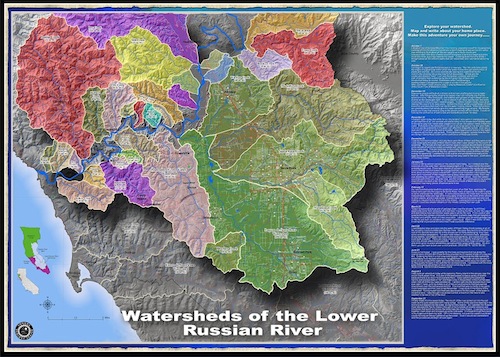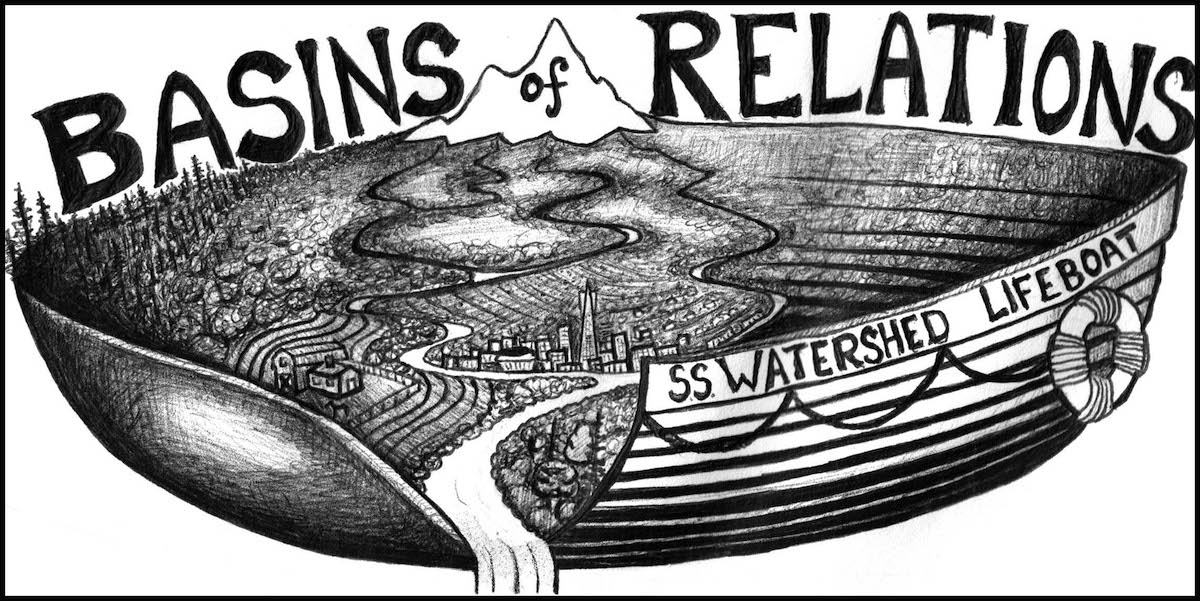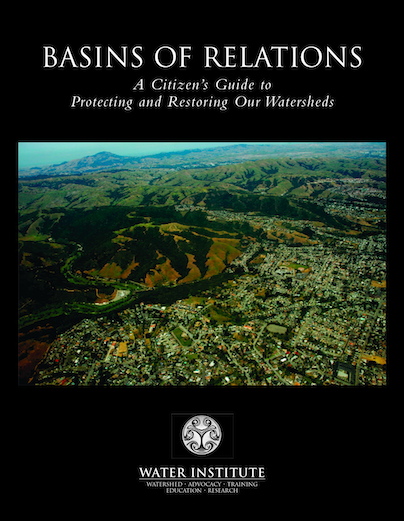WATERSHEDS
What is a Watershed?
From Basins of Relations: A Citizen’s Guide to Protecting and Restoring Our Watersheds
The term “watershed” describes basins, catchments or drainages of varying sizes that convey all surface and groundwater that falls within them and runs through them. Watersheds can be as small as the property you live on or as large as the Mississippi basin, which drains 40% of the North American continent. A watershed is geographically defined by the highest ridgelines, or watershed divides, that encircle it. It is these divides that differentiate it from the adjacent watershed.
It is common for people to focus on a creek or river alone when, in fact, everything that occurs from the ridgeline to the rivermouth makes up the watershed. The movement of water over and through the living ecosystem connects us to one another and to all species living in our Basin of Relation. The quality and quantity of this precious liquid can determine which and how many of each species can sustainably live in each watershed.
The better we understand the relationship between our actions and the watershed we live in, the more likely we are to ensure water security for all species that share a watershed.

The WATER Institute is located in the headwaters of Dutch Bill Watershed, an 11 square mile tributary nested within its larger watershed, the 1480 square mile Russian River basin. Dutch Bill Watershed is the small purple one in the map that flows from Occidental to Monte Rio.

BASINS OF RELATIONS GUIDE
To offer a historical context of past and present water issues as well as resources for individuals, communities and policy-makers, the WATER Institute produced a publication that aims to increase citizens’ participation in the restoration and protection of watersheds. The publication also increases hydrological literacy and offers practical options to elected officials who are trying to meet Federal and state mandates on water conservation, stormwater issues and endangered species.
This booklet is intended for all people and organizations interested in conservation issues whether they are new to watershed awareness or are already seasoned watershed policy makers, scientists or activists. It has been written as a tool for individuals to educate themselves and for those working to educate others about the myriad issues facing our watersheds and the steps we can take to preserve them.
Purchase a full-color copy
We offer bulk discounts! Interested in ordering multiple copies for your watershed group, classroom, or advocacy work? Contact the OAEC office (707)874-1557×101 for orders of 5 or more.






